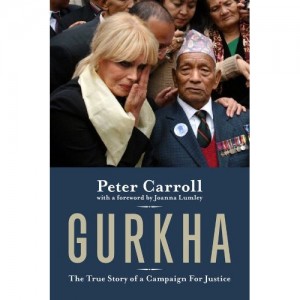Gurkha: The true story of a campaign for justice by Peter Carroll
I first published this book review in 2012 and have given it a light update now as one of its lessons – how there’s much more to political campaigns than electioneering simply designed to maximise votes on polling day – is very relevant to current debates in the Liberal Democrats over what the party’s strategy should be. In particular, what should the balance be between a focus on winning elections and between other actions aimed at securing changes to the country which make it more liberal and democratic?
 The Gurkha Justice campaign, seeking to give those who had served in the British army the right to settle in Britain afterwards, is a classic and heartwarming story of how a small number of people can bring justice and joy to many.
The Gurkha Justice campaign, seeking to give those who had served in the British army the right to settle in Britain afterwards, is a classic and heartwarming story of how a small number of people can bring justice and joy to many.
For many years Gurkhas and others had raised the injustice of ex-soldiers being told ‘thank you for your bravery, now go and live elsewhere’. It was, however, only when Peter Carroll got involved that an effective campaign really started to take shape and then took off after a chance remark from a passing member of the public tipped him off to Joanna Lumley’s potential backing.
As Peter Carroll puts it in this account of the campaign:
We think that our great institutions – our political parties, charities and campaign groups – have always just been there. They haven’t. Somebody, somewhere, at some point in time had the burning desire to change something. It would be their efforts, almost always with the help of only a very few, that would generate the whole movement.
Lumley’s contribution was crucial, providing the sort of celebrity media pulling power that gives celebrities a good name. Only the involvement of someone like her allowed Peter Carroll to summon national media attention at a crucial point with the short message: “Joanna Lumley will be in Millbank at 4.00pm and she is angry”.
Carroll is fulsome in his praise for Lumley; if anything too fulsome for the praise of her calmness and kindness gets a little repetitive at times. Yet the enthusiastic good humour with which Carroll describes his work with Lumley means it is hard to be too irritated by the repetition or the clumsy language at other times.
The good nature of the account also means Peter Carroll has little to say about why the Gurkha community is so fragmented, with many groups at loggerheads with each other. He talks about handling some of the resulting difficulties but (perhaps wisely) does not try to give much sense of the origin of the splits and who, if anyone, was in the right or wrong.
Instead, we get a brisk and often very moving account of how Peter Carroll crystallised and led a very effective campaign. Along the way are many lessons for other campaigners, especially the way in which Joanna Lumley used charm and an emphasis on points of agreement with ministers to secure a change of policy from them. Telling them they were lying bastards who live in a world of delusion would not have worked. Manners and smarts did.
For many Liberal Democrats, Peter Carroll is as well, if not better, known for his party activities, including standing against Michael Howard in 2005. The book touches on his political career, including the painful way in which a disastrous period of local council mis-management by Lib Dem colleagues largely sunk his Parliamentary chances.
Most interesting are the points when he, a relative newcomer to party politics, describes his attempts to get to grips with how the party operates. Such accounts normally come from either seasoned insiders or cynical outsiders. Reading this sort of sympathetic account of how the party’s ways of working can baffle is a rarity, and is welcome.
Whether that aspect also interests you in the book or not, it’s a great account of an emotional and successful campaign.
You can buy Gurkha: The True Story of a Campaign for Justice by Peter Carroll here.
Leave a Reply